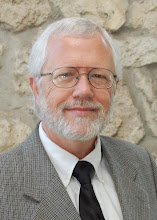Its history is beautifully retold in Jerusalem: Center of the World, which premiered on PBS on April 1 and was released as a DVD shortly thereafter. Handsomely shot and diplomatically written, it is a rarity among documentaries -- a film on the Holy Land that's well done, but doesn’t graft someone's pet theory onto the topic.
The two-hour show traces the historical reasons -- st
 ill visible today in the holy sites -- why those few acres have grabbed and held our attention for four millennia.
ill visible today in the holy sites -- why those few acres have grabbed and held our attention for four millennia.With the sure, steady hand of PBS newsman Ray Suarez, Jerusalem: Center of the World plays it straight with biblical history. It tells of Abraham's call to move to the land, and how God tested his loyalty by asking him to sacrifice his son Isaac. It tells of the magnificent Temple built on the spot centuries later by his descendant Solomon. And it tells the grief over losing the land when the Romans scattered the Jews.
The documentary continues with the story of Christianity, and Jesus' final days in Jerusalem. It shows the Via Dolorosa, the winding street said to mark the 14 events between his arrest and his burial. It also ventures into the cavernous Church of the Holy Sepulchre, traditional site of the crucifixion, burial and resurrection.
But it moves on to tell of the importance of the city to Muslims as the "Farthest Mosque," or al-Masjid al-Aqsa, mentioned in the Quran. There’s an awe-inspiring walk through the Dome of the Rock, the golden-domed shrine that dominates nearly every photo of Jerusalem.

Not that the special swallows all the legends whole. It acknowledges that non-biblical evidence is scant for people like David, and for events like Muhammad's nighttime visit to Jerusalem. But it doesn’t air historical gossip or shifting archaeological fads.
Jerusalem: Center of the World tells how the Romans put down a Jewish revolt, then destroyed and rebuilt Jerusalem after 70 A.D. The film also covers -- perhaps a bit too lightly -- its rebuilding as a Roman city, then a Byzantine pilgrimage site, then the Ottoman period, heading into the 20th century.
The documentary producer, Two Cats Productions, clearly found a soulmate in the Muslim family entrusted with the key to the front door of the Church of the Holy Sepulchre. The head of the family is given considerable camera time explaining the complexities of caring for such a sensitive holy place.
Jerusalem: Center of the World also skirts controversy in saying that scholars agree the Temple once stood on Mount Moriah, but all evidence for the structure is gone. Left unmentioned are the arguments of Asher Kaufman and others that the Waqf, the Arab authority governing the mountain, has purposefully destroyed such evidence.
But it seems to lean toward the Muslim side in dealing with the Crusades. It relates the the brutality of the First Crusade, but stays silent on the destruction of all churches and synagogues in Jerusalem by the Muslim ruler Hakim a century earlier.
Still, Jerusalem: Center of the World is a welcome tone of moderation about a city so given to extremes. When PBS makes the DVD available, it will likely get bought up by a lot of libraries -- and by families who want more light than heat.

No comments:
Post a Comment